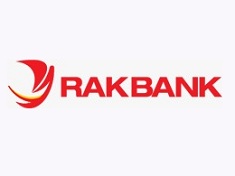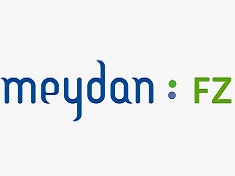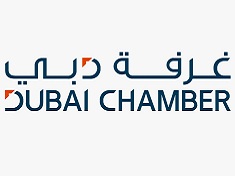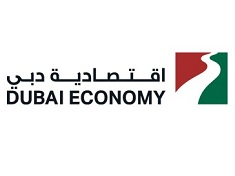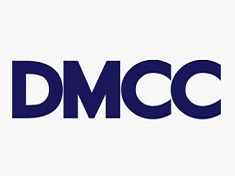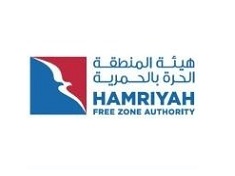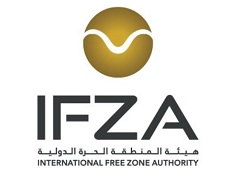OUR FAQ
Samples of excise goods that are given away for free will also be subject to excise tax. Excise tax is not a transaction based tax so tax is due on the goods when they are released for consumption (i.e. enter free circulation) in the UAE, regardless of whether or not they are intended for sale.
The following goods are subject to excise tax in UAE at the following rates of tax: Carbonated drinks – 50% Energy drinks – 100% Tobacco – 100%
A business must register for VAT if its taxable supplies and imports exceed the mandatory registration threshold of AED 375,000. A business must register for VAT if its taxable supplies and imports exceed the mandatory registration threshold of AED 375,000. Similarly, a business may register voluntarily if its expenses exceed the voluntary registration threshold. This latter opportunity to register voluntarily is designed to enable start-up businesses with no turnover to register for VAT
Unlike VAT, excise tax is paid once in the supply chain and businesses that have purchased excise goods cannot obtain a refund of the excise tax paid on those goods. There are a limited number of cases where a refund of excise tax will be available. Those cases are: a) When excise tax has been paid on an excise good, which is then produced in to a ‘new’ excise good, on which excise tax is again due; b) When excise tax has been paid on an excise good that is then exported outside the UAE; or c) When amounts have been paid to the FTA in error. In the above cases, a business registered for excise tax will be entitled to a refund of the excise tax paid. The refund will be granted by allowing a deduction of the refundable amount from the tax due in the next excise tax return period. There are also a limited number of cases where refunds will be available to people who are not registered for excise tax. Those cases are: a) Where excise tax has been paid by certain international governments, diplomatic missions and international organisations in the course of their official activities, where a reciprocal agreement is in place between the UAE and the entity’s home country; and b) Where excise tax has been paid in the UAE by a person who is registered for excise tax in another GCC country that is implementing excise tax and who has then exported the excise goods out of the UAE and paid excise tax in that other GCC country.
Accounting is the concept used to define an organization’s financial activities in depth and routinely. There are also various kinds of businesses, audit accounts, administration accounts, policy accounting, and small to medium-sized firms. This is the way the company tracks the financial documents, organizes them, and knows them. Accounting services show you whether you earn a profit or not, what your cash balance is, how what the company’s assets and liabilities really are worth, and which aspects of the corporation really generate profits.
VAT on E-commerce sales in UAE depends on the location of supplier and recipient. 5% VAT will be applicable on online sales in UAE.
As a seller on Amazon or Noon, it is your responsibility to comply with the VAT Law at all times. This includes issuing valid tax invoices for sales made to customers, collecting VAT (if applicable) and payment of VAT to the UAE Federal Tax Authority (“FTA”).It is your sole responsibility to comply with all legal and VAT requirements for issuing Tax Invoices to buyers in respect of your sales transactions. If you are unsure as to whether you have to issue a Tax Invoice to the buyer, we recommend that your consult with your tax advisor.
New VAT fines and penalties have been announced and the good new is that FTA has reduced them to help businesses to recover from the impact of COVID-19. FTA has reduced the penalties on VAT to motivate the businesses to avoid fines by ensuring VAT compliance. The amendments will be effective from 28 June 2021.Read more: VAT fines and penalties.
Yes. If you are a non-UAE resident selling goods that are located in the UAE to a UAE customer, then you will be required to register for VAT irrespective of the level of turnover from such sales.A non-established business selling goods from the UAE shall be subject to a NIL VAT registration threshold. VAT registration will be effective from the date on which you started making sales in the UAE.
Your task is choosing the best audit firms in Dubai which makes a significant impact on your business—and certifies that your finances are well-managed—because that can make or break your business. Hiring a reliable, qualified, and reputable auditing firm is one of the best things you can do for protecting and promoting your business.
Selecting your auditing firm is an important task and must be done carefully. You need to appoint an audit firm that adds value to your business by identifying wrongdoings, staff weaknesses, and internal control weaknesses. Most importantly, you need a firm that provides recommendations to address the issues identified during the audit.
Yes, we offer PPC services for all types of businesses. We create packages tailored to our clients based on their needs. Call us now.
Businesses are confused about how to treat discounts under VAT in UAE. As per FTA, VAT will be calculated on discounted prices in UAE. Discount is often used as a sales strategy by businesses to attract their customers. A Discount is referred as a reduction in price.
YES! Outsourced accounting services in UAE means hiring an accounting firm that provides a full accounting department experience. This usually comprises everything from the day-to-day transaction coding, accounts receivable, accounts payable, payroll and taxation to managing financial reporting. Small businesses in UAE face many challenges in the early stages of their business. Hiring a full time dedicated accountant is very costly in UAE because a business needs to provide the accountant with company visa, health insurance, travel ticket and monthly salary along with the integration of a suitable accounting software. Businesses in UAE can avoid all this cost by just outsourcing accounting services for their small business in Dubai, UAE.
Corporate Tax is a form of direct tax levied on the net income or profit of corporations and other businesses.
Corporate Tax is sometimes also referred to as “Corporate Income Tax” or “Business Profits Tax” in other jurisdictions.
A competitive CT regime based on international best practices will cement the UAE’s position as a leading global hub for business and investment, and accelerate the UAE’s development and transformation to achieve its strategic objectives
Introducing a CT regime reaffirms the UAE’s commitment to meeting international standards for tax transparency and preventing harmful tax practices
Most countries in the world have a comprehensive CT regime, including most of the GCC Member States.
The UAE CT regime will become effective for financial years starting on or after 1 June 2023
Examples:
- A business that has a financial year starting on 1 July 2023 and ending on 30 June 2024 will become subject to UAE CT from 1 July 2023 (which is the beginning of the first financial year that starts on or after 1 June 2023)
- A business that has a (calendar year) financial year starting on 1 January 2023 and ending on 31 December 2023 will become subject to UAE CT from 1 January 2024 (which is the beginning of the first financial year that starts on or after 1 June 2023)
The UAE CT is a Federal tax and will therefore apply across all Emirates.
The Federal Tax Authority will be responsible for the administration, collection, and enforcement of UAE CT
The Ministry of Finance will remain the ‘competent authority’ for purposes of bilateral/multilateral agreements and the international exchange of information for tax purposes
UAE CT will apply to all UAE businesses and commercial activities alike, except for the extraction of natural resources, which will remain subject to Emirate level corporate taxation
All activities undertaken by a legal entity will be deemed “business activities” and hence be within the scope of UAE CT
This would generally be done by reference to the individual having (or being required to obtain) a business licence or permit to carry out the relevant commercial, industrial and/or professional activity in the UAE
The taxable income will be the accounting net profit of a business, after making adjustments for certain items to be specified under the UAE CT law.
The accounting net profit of a business is the amount reported in the financial statements prepared in accordance with internationally acceptable accounting standards.
The CT rates are:
- 0% for taxable income up to AED 375,000;
- 9% for taxable income above AED 375,000; and
- a different tax rate for large multinationals that meet specific criteria set with reference to 'Pillar Two' of the OECD Base Erosion and Profit Shifting project
A multinational corporation is a corporation that operates in its home country, as well as in other countries through a foreign subsidiary, branch or other form of presence / registration. Merely earning income from outside its home country without a foreign presence or registration would not make a business a multinational corporation.
In the context of the global minimum effective tax rate as proposed under 'Pillar Two' of the OECD Base Erosion and Profit Shifting project,” large” refers to a multinational corporation that has consolidated global revenues in excess of EUR 750m (c. AED 3.15 bn)
UAE CT will not apply on an individual’s salary and other employment income (whether received from the public or private sector)
Business income earned under a commercial license will be within the scope of UAE CT
The investment in real estate by individuals in their personal capacity should not be subject to UAE CT provided the individual is not required to obtain a commercial license or permit to carry out such activity in the UAE.
Individuals will not be subject to UAE CT on dividends, capital gains and other income earned from owning shares or other securities in their personal capacity.
UAE CT will generally apply to income earned from activities carried out under a freelance license / permit, albeit no CT will be payable unless the annual net income of the freelance professional exceeds AED 375,000.
Interest and other income earned by an individual from bank deposits or saving schemes will not be subject to UAE CT
The CT liability will be calculated as follows:
- Taxable income of AED 0 - AED 375,000 at 0% = AED 0
- Portion of taxable income exceeding AED 375,000 (i.e. AED 400,000 - AED 375,000 = AED 25,000) at 9% = AED 2,250
The UAE CT liability for the year will be AED 0 + AED 2,250 = AED 2,250
The final amount of UAE CT payable will be reduced by any foreign taxes incurred on the relevant income (see below under ‘Tax Credits’ section)
Businesses engaged in the extraction of natural resources will remain subject to Emirate level corporate taxation and be outside the scope of UAE CT.
Information on other UAE CT exemptions and exclusions will be provided in due course
Dividends and capital gains earned by a UAE business from its qualifying shareholdings will be exempt from UAE CT
A qualifying shareholding refers to an ownership interest in a UAE or foreign company that meets certain conditions to be specified in the UAE CT law.
Qualifying intra-group transactions and reorganizations will not be subject to UAE CT provided the necessary conditions are met
Foreign entities and individuals will be subject to UAE CT only if they conduct a trade or business in the UAE in an ongoing or regular manner.
UAE CT will generally not be levied on a foreign investor’s income from dividends, capital gains, interest, royalties and other investment returns.
Free zone businesses will be subject to UAE CT, but the UAE CT regime will continue to honour the CT incentives currently being offered to free zone businesses that comply with all regulatory requirements and that do not conduct business with mainland UAE
A business established in a free zone will be required to register and file a CT return.
Further details on the compliance obligations of free zone businesses will be provided in due course
The UAE CT treatment that will apply to businesses in free zones will be the same across all free zones.
Businesses engaged in the extraction of natural resources will remain subject to Emirate level corporate taxation and be outside the scope of the UAE CT
Banking operations will be subject to UAE CT.
Further details on the current Emirate level corporate taxation will be provided in due course.
Businesses engaged in real estate management, construction, development, agency and brokerage activities will be subject to UAE CT.
The UAE CT regime will allow a business to use losses incurred (as from the UAE CT effective date) to offset taxable income in subsequent financial periods.
A loss for CT purposes (tax loss) would arise when the total deductions the businesses can claim are greater than the total income for the relevant financial period.
Excess tax losses may be carried forward and used against taxable income in future years, provided certain conditions are met
Further information on the UAE CT loss carry-forward rules will be provided in due course
Tax losses from one group company may be used to offset taxable income of another group company, provided certain conditions are met Further information on the group loss utilisation rules will be provided in due course
A UAE group of companies can elect to form a tax group and be treated as a single taxable person, provided certain conditions are met
A UAE tax group will only be required to file a single tax return for the entire group.
Withholding tax is tax collected at source by the payer on behalf of the recipient of the income
Withholding taxes exist in many tax systems and are typically used in respect of dividends, interest, royalties and similar payments
UAE withholding tax will not be applicable on domestic and cross-border payments of any nature under the UAE CT regime
Foreign CT paid on UAE taxable income will be allowed as a tax credit against the UAE CT liability
Transfer pricing rules seek to ensure that transactions between related parties are carried out on arm’s length terms (i.e. as if the transaction was carried out between independent parties)
UAE businesses will need to comply with transfer pricing rules and documentation requirements set with reference to the OECD Transfer Pricing Guidelines



